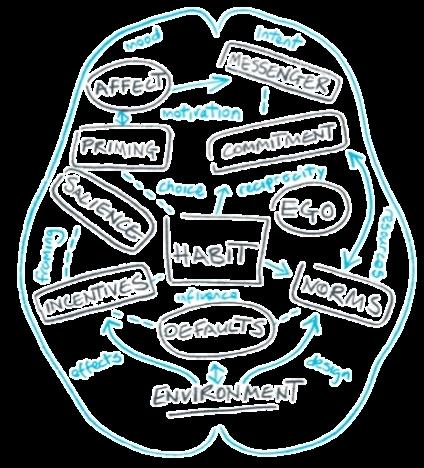
2 minute read
Health Behavior: Why do people make unhealthy choices?
from SCOPH Newsletter
by IFMSA-Egypt
Lifestyle and behaviour
Advertisement
What may we be thinking about
when we say health behavior? It may be:
Unhealthy consumption weight, over-
of energy-dense
food and drink Physical inactivity, inconvenient opportunities to undertake active travel Substance misuse whether through alcohol or illicit substances Risky sexual behaviors such as unprotected sex or having multiple concurrent partners
SO, what might drive such behaviors? AND why do so many people undertake so many of these behaviors? It is sometimes difficult to understand why people make unhealthy choices. For example, there’s been evidence for years to tell us that smoking is harmful to our health. However, people including health professionals still make the choice to engage in this behavior. Another example, no one ignores the fact that a high calories diet influences obesity, however, our fridges are still full of unhealthy food. Why? There are multiple reasons why people choose to carry out such behaviors, some of these reasons are weather complicated. Some behaviors are done for recreational purposes or just to keep pace with society and friends. Behaviors are not easily controlled by an on and off switch but rather they are more complex and multidimensional which influences how easy or difficult it is to carry them out.
Behavior and Public Health
During health the past years, the public
field was focusing
on preventing illness and maintaining good health by changing individuals’ lifestyles via behavioral changes. The WHO defines Health-related Behaviour as actions and habits that relate to health maintenance, restoration, and improvement which correspond to the three levels of disease prevention. Behaviors within this definition include medical service usage (e.g., physician visits, vaccination, screening), compliance with medical regimens (e.g., dietary, diabetic, antihypertensive regimens), and self-directed health behaviors (e.g., diet, exercise, smoking, alcohol consumption).
Health maintenance in the context of health behavior: there are many activities that we can do to make sure that we stay healthy, often these are in the form of primary prevention, but sometimes it doesn’t work and fall into secondary and tertiary categories.
One of the main examples of health maintenance is going for annual checkups with your physician. Annual checkups provide an opportunity to diagnose cases that may not show any warning symptoms, eg: Hypertension which is asymptomatic in its early stages. Thus diagnosis allows the doctor to rectify the patient's health behavior, by diet & lifestyle improvements along with medication.

These actions for improvement of health can be taken at the individual, interpersonal, organizational, community and policy levels. Thus, health behavior can be defined as actions taken with a measurable frequency, intensity, and duration. Which occur at the individual, interpersonal, organizational, community and policy levels to support primary, secondary, and tertiary prevention of disease.
To sum up, behaviors
concerning health may be health-promoting ones or health risking behaviors that ultimately play a role in either better health & wellbeing or susceptibility to illnesses.









